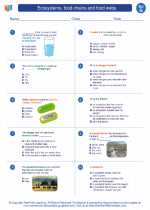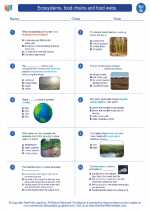Antihypertensives
Antihypertensives are a class of drugs used to treat high blood pressure, also known as hypertension. High blood pressure can lead to serious health complications such as heart disease, stroke, and kidney failure. Antihypertensives work by relaxing blood vessels, reducing the volume of blood, or decreasing the force of the heart's contractions, thus lowering blood pressure.
Types of Antihypertensives
There are several types of antihypertensive drugs, each working in different ways to lower blood pressure:
- Diuretics: These drugs help the body get rid of excess sodium and water, reducing blood volume.
- ACE Inhibitors: They block the production of a hormone called angiotensin II, which causes blood vessels to constrict.
- ARBs (Angiotensin II Receptor Blockers): These drugs block the action of angiotensin II, leading to relaxation of blood vessels.
- Calcium Channel Blockers: They prevent calcium from entering the muscle cells of the heart and blood vessels, causing relaxation and widening of the vessels.
- Beta Blockers: These drugs reduce the heart rate and the heart's output of blood, lowering blood pressure.
- Alpha Blockers: They reduce nerve impulses to blood vessels, allowing blood to pass more easily.
Side Effects and Precautions
Like all medications, antihypertensives have potential side effects and precautions that should be considered:
- Dizziness or lightheadedness
- Fatigue
- Headaches
- Nausea
- Cough
- Swelling in the legs
- Rapid heartbeat
It's important to follow the prescribed dosage and not to discontinue the medication without consulting a healthcare professional. Additionally, certain antihypertensives may not be suitable for pregnant women or people with certain medical conditions, so it's crucial to discuss any existing health issues with a doctor before starting antihypertensive treatment.
Study Guide
Here are some key points to remember about antihypertensives:
- Define hypertension and its potential health risks.
- List and explain at least three types of antihypertensive drugs and how they work.
- Discuss the possible side effects of antihypertensives and precautions to be taken while using them.
- Explain the importance of following prescribed dosage and consulting a healthcare professional before discontinuing the medication.
- Identify the specific types of antihypertensives that may not be suitable for pregnant women or individuals with certain medical conditions.
Understanding antihypertensives and their role in managing high blood pressure is essential for anyone studying pharmacology or interested in maintaining cardiovascular health.
.◂Science Worksheets and Study Guides Seventh Grade. Ecosystems, food chains and food webs

 Activity Lesson
Activity Lesson
 Worksheet/Answer key
Worksheet/Answer key
 Worksheet/Answer key
Worksheet/Answer key
 Worksheet/Answer key
Worksheet/Answer key
 Vocabulary/Answer key
Vocabulary/Answer key
 Vocabulary/Answer key
Vocabulary/Answer key
 Vocabulary/Answer key
Vocabulary/Answer key
 Vocabulary/Answer key
Vocabulary/Answer key
 Vocabulary/Answer key
Vocabulary/Answer key
